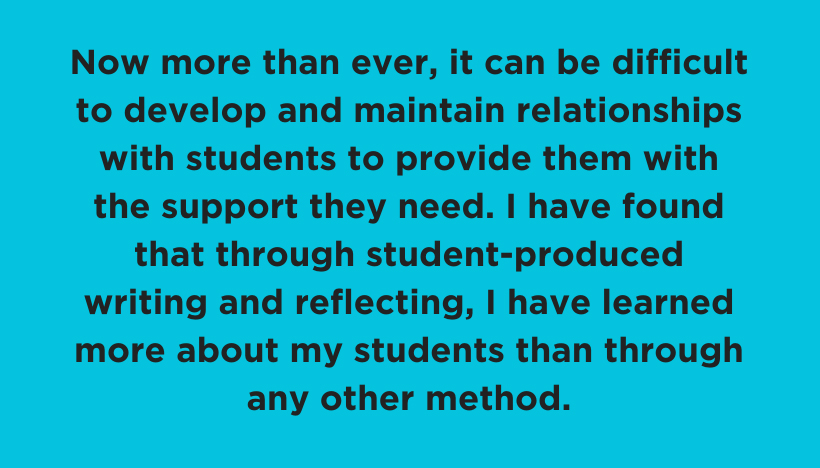This post was written by NCTE student member Miya Miller.
The dream to teach sparked in my middle school years; it was the first time I truly felt supported by those who were teaching me. I moved to a new school district where I knew no one, and it was clear I was struggling making new friends. My teachers noticed this and gave me chances to branch out and meet my fellow students. Not only did they teach me in the classroom, but they listened to my struggles and offered support through a hard time. I wanted to be just like them, advocating for students who haven’t yet found their voice and giving them chances to discover it.
As a preservice teacher, I find this dream is getting closer and closer. I’ve prepared myself with loads of English content courses and many hours of learning how to be “the Cool English Teacher.” I am no stranger to writing lesson plans, evident by the numerous copies splayed out on my desk as I write this. But there’s one major part I didn’t really prepare for: actually teaching and talking to the students.
I’ve realized there is a lot more to teacher-student connection than standing in front of a white board differentiating between anaphora and parallel structure. Of course, teaching a room full of students can be intimidating by itself, but how do educators learn more about students outside of classroom content? Between classes, there is chatter and connection happening in the halls, but what are students talking about? As teachers, how do we find ways of supporting individual students when we don’t know much about them?
Now more than ever, it can be difficult to develop and maintain relationships with students to provide them with the support they need. I have found that through student-produced writing and reflecting, I have learned more about my students than any other method.
During our reading of Persepolis, for example, the seniors noticed the main character’s bravery when she spoke up against her own government’s mandates. The closing assignment prompted students to write about a time they felt brave enough to speak up for something they believed in, particularly against an authority figure.
I was nervous about giving this assignment. I didn’t know what to expect from students’ writing, fearing they wouldn’t be able to relate to a young oppressed girl whoseclothing is controlled by the government. But the responses were astounding. One student stood up for his friend who had been bullied after a football game, another spoke out for her religious beliefs in a room full of people different from her. A seemingly quiet student wrote about the time she went on strike with other marching band members because they felt mistreated by their directors.
From their writings, I found that even when at odds with powerful people in the room, these amazing students had the courage to speak up for what they believed in. This is something I might not have been able to learn about them through in-class discussions. I now realize that the act of students writing down their thoughts and articulating their own opinions is vital to the discovery of their voice.
Students continuously read examples of thoughts and opinions but may have a difficult time developing their own. Giving them opportunities to find and expand this voice is so important to their overall development. This practice can also be executed when discussing argumentative texts. It’s necessary for students to identify arguments but even more so to develop their own.
Allowing students opportunities to express these opinions is especially beneficial when applying our content standards to real-world scenarios. When I provided my students with a prompt that forced them to relate the text to their own life, it allowed them to notice the similar traits between themselves and the characters. As an English educator, I find that it will be valuable to show students examples related to their real lives as well as provide them the opportunity to reflect with their own words.
This meshing of teaching standard English conventions and giving students chances to develop their voice proves to be quite powerful. When a person finds their voice, opinion, or core values through writing, their potential is unlimited.
 Miya Miller is a senior Adolescent Young Adult (AYA) Education major at Wittenberg University in Springfield, Ohio.
Miya Miller is a senior Adolescent Young Adult (AYA) Education major at Wittenberg University in Springfield, Ohio.
It is the policy of NCTE in all publications, including the Literacy & NCTE blog, to provide a forum for the open discussion of ideas concerning the content and the teaching of English and the language arts. Publicity accorded to any particular point of view does not imply endorsement by the Executive Committee, the Board of Directors, the staff, or the membership at large, except in announcements of policy, where such endorsement is clearly specified.

